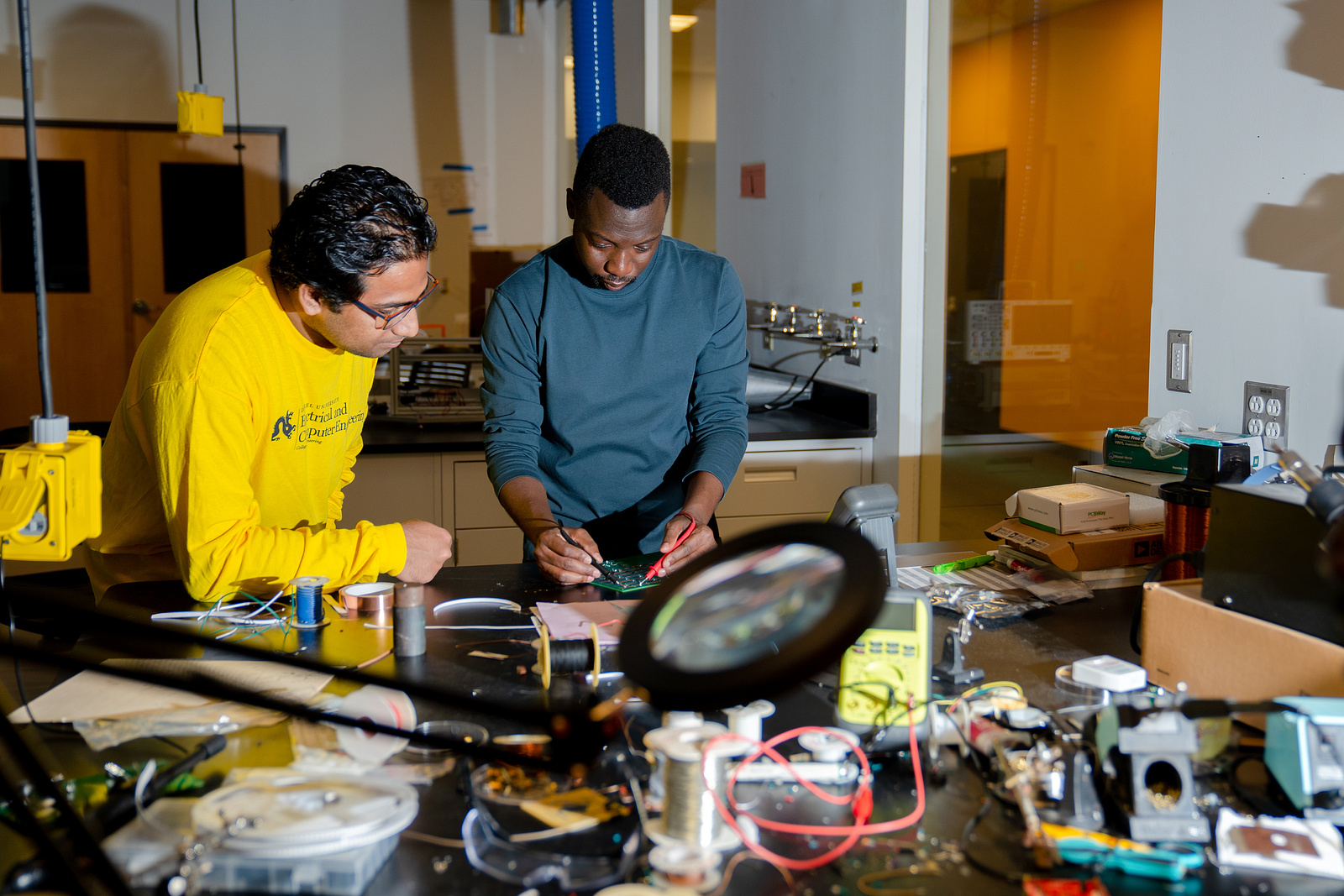
As demand for internet-connected smart devices grows, so too does the need
for engineers with the training, creativity and interdisciplinary
problem-solving skills to work and innovate in this burgeoning field. To
address this need, starting in the Fall of 2022, the College of Engineering
at Drexel University offers a new master’s degree program in the Internet
of Things (IoT),
“The Internet of Things (IoT) is considered to be one of the most rapidly
adopted and developing technologies that is projected to transform our
future cities,” said Kapil Dandekar, PhD, E. Warren Colehower Chair Professor in electrical and computer engineering. “In the coming decade,
there are projected to be tens of billions of IoT devices, which will
increasingly shape our everyday lives.”
The flexible program is designed to fill the needs of many types of career
goals. In addition to foundational technology courses in communications,
networks, antennas, machine learning, students will be able to choose
electives in topics such smart grids, intelligent buildings, and medical
devices.. The program will also teach the entrepreneurial and management
side of IoT with courses in new product and new venture creation.
“The program is highly customizable according to your background and
professional interests,” Dandekar said. “Whether you are looking to join
industry for the first time, up-skill and transition to a new career, start
your own company, or pursue advanced research and development, this degree
can get you there.”
The future of IoT centers not only on hardware and physical products that
take advantage of it, but also in the storage and processing of the data
collected by these systems. Existing and established companies are
increasingly using IoT for new products that can integrate with each other
for smart health, smart building, and smart city applications. Meanwhile,
as these systems become more mature and pervasive in society, there are
concerns about how this new technology can lead to new challenges in
privacy and security. Drexel’s ethos of stakeholder-based design and
use-inspired research will ensure that those who earn degrees through the
IoT program are aware of these opportunities and challenges, and design
systems from the ground up with these topics in mind.
The program will make special use of the Drexel Wireless Systems
Laboratory, offering exciting new hands-on courses that teach the
fundamentals of analog and digital communications, as well as techniques
associated with modern wireless networking protocols that are essential for
the IoT. Students will use software defined radios, which can be
reprogrammed to act like different wireless devices, to transmit and
receive signals over the air.
“One particularly exciting class will include a ‘Radio Wars’ competition,
where they students ‘race’ radios to see who can transmit the most data and
adapt to possible wireless jamming,” Dandekar said.
In addition to the lab classes, the program will include lecture-based
classes that will be available in the evening, online or in hybrid
formation for maximum flexibility. Full-time and part-time plans of study
will also be available, along with an opportunity to leverage Drexel’s
leadership in cooperative education and incorporate a graduate coop into
their degree program.
For more information on the MS in IoT,
see the program’s webpage.